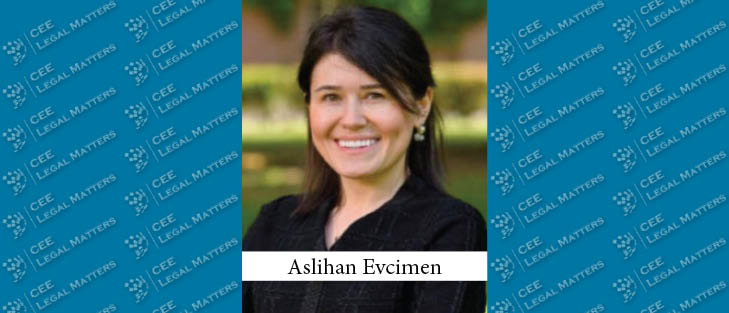Whistleblowing transcends being a mere procedural checkbox – it is a lifeline for organizational integrity and accountability. It serves as a crucial mechanism for employees, business partners, and third parties to report unethical practices, illegal activities, or violations of company policies within their organizations.
As the first line of defense against internal misconduct, whistleblowing plays a pivotal role in maintaining organizational integrity. When implemented effectively, it ensures that potential issues are addressed early, preventing them from escalating into full-blown crises. However, as an experienced legal and compliance professional, I must emphasize that the success of a whistleblowing system demands more than just policies and legal frameworks – it also requires a well-structured, top-to-bottom approach in which leadership actively champions transparency and ethical behavior.
At the heart of whistleblowing lies the principle of accountability and transparency. Employees, business partners, and third parties involved with an organization are often the first to notice when something is amiss – be it financial fraud, regulatory violations, or workplace harassment. By establishing a safe environment where these stakeholders can report their concerns without fear of retaliation, organizations can mitigate risks early on. This proactive approach not only protects the organization from legal liabilities, financial losses, and reputational damage but also fosters a culture of trust and engagement. Employees and partners who believe their concerns will be taken seriously are more likely to contribute positively, enhancing overall morale and productivity.
The effectiveness of any whistleblowing system hinges on leadership commitment. A top-to-bottom approach is crucial, where ethical behavior is not merely encouraged but mandated from the highest levels of the organization. This commitment starts with senior executives and the board of directors, who must visibly support whistleblowing initiatives and embody the organization’s commitment to transparency. Leadership must go beyond simply having a whistleblowing policy – they need to actively promote it as a core value. When leaders set the tone from the top, that commitment filters down through the organization, reinforcing the expectation that ethical behavior is non-negotiable at every level.
For a whistleblowing system to truly be effective, it must be supported by clear and comprehensive policies. These should specify what can be reported, the process for reporting, and the protections available to whistleblowers. Policies must be easily accessible and regularly updated to reflect changes in laws and company procedures. Crucially, organizations should offer multiple channels for reporting concerns, including anonymous hotlines, online platforms, and in-person meetings with designated legal and compliance professionals. Providing various options increases the likelihood that employees and partners will come forward, especially if they can do so confidentially.
Confidentiality and protection from retaliation are fundamental to any effective whistleblowing system. The fear of retaliation – whether in the form of dismissal, demotion, harassment, or ostracism – often deters individuals from reporting misconduct. Organizations have a legal and ethical obligation to protect whistleblowers from these consequences. Many countries have established robust legal frameworks to safeguard whistleblowers and require legal protections and establish secure reporting channels.
However, legal protections alone are not enough. Organizations must also cultivate a culture where whistleblowing is not just tolerated but encouraged and valued. This cultural shift starts with leadership. Executives and senior managers need to actively communicate that whistleblowing is a positive and necessary contribution to maintaining ethical standards. Regular communication about the importance of ethics and transparency helps to reduce the stigma associated with whistleblowing, making it clear that reporting concerns is both safe and encouraged.
Middle management plays a critical role in this cultural transformation. Managers must be trained to handle whistleblower reports with professionalism and sensitivity, ensuring confidentiality and support throughout the process. A poorly handled report can erode trust in the system, so managers need the right tools and training to manage these situations effectively.
A strong whistleblowing system must also commit to thorough, impartial investigations. Once a report is received, the organization must take it seriously, assigning independent investigators to assess the claims and gather evidence. The investigation process should be transparent, with whistleblowers kept informed of the progress where appropriate. Acting on the findings – whether through disciplinary measures, policy changes, or other corrective actions – demonstrates the organization’s commitment to upholding ethical standards.
Continuous evaluation and improvement are necessary for the long-term success of whistleblowing systems. Leadership should regularly review the system’s effectiveness by analyzing metrics such as the number of reports received, investigation outcomes, and employee trust levels. Feedback from employees and partners can provide valuable insights for refining the system, ensuring it remains effective and responsive to organizational needs.
In conclusion, whistleblowing is integral to creating a culture where ethics and transparency are not just buzzwords but are embedded in the organization’s fabric. By adopting a top-to-bottom approach, supported by robust legal protections and well-implemented systems, organizations can empower employees, business partners, and third parties to speak up without fear. This proactive stance not only protects the organization from potential harm but also reinforces its reputation as a trusted, ethical entity. Whistleblowing, therefore, is not just a compliance requirement but a critical component of an organization’s long-term success, fostering a culture of integrity that benefits everyone involved.
By Aslihan Evcimen, Country Legal Director, Saint-Gobain













